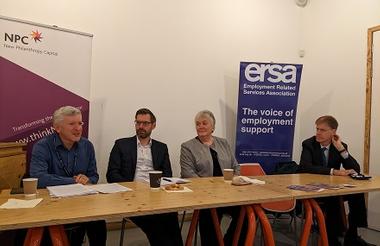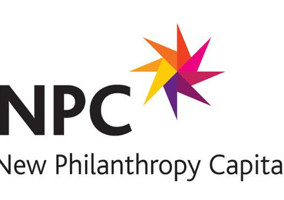The charity sector could play a crucial role in enabling people to re-enter the job market, New Philanthropy Capital (NPC) has said.
Speaking today at a fringe event at the Labour Party Conference, NPC’s chief executive Dan Corry argued that charities are best placed to get people back into work.
He said that “it takes time to work with people” and that requires trust, which charities are “very good at”. “They have a completely different ethos and certainly that’s how the user tends to feel them.”
Corry also told delegates that civil society can play an important role in the government’s levelling up agenda because they create social capital and work with people in need.
The role of charities in getting people back to work
In his opening comments, Corry urged the government and the opposition to make the issue of employment part of their growth agenda.
“One thing that’s clear is that a lot of the people who aren’t in the labour market at the minute are quite far from work. They struggle to engage or they’re excluded for different reasons from statutory services (homeless, disability, those in the justice system). One of the things that charities and non-profit sectors are very good at is working with these kinds of people and engaging with them. We all know that if you want to get someone back to work, who were into work the first time and have not really been there, that it takes a while,” he said.
“[…] But it takes time to work with people, you have to create the trust, charities are very good at that. They have a completely different ethos and certainly that’s how the user tends to feel them. That needs to be a crucial part, getting people back to work.”
Lack of data for impact measurement
NPC and trade membership body the Employment Related Services Association have been calling on the Department for Work and Pensions (DWP) to develop an employment data lab.
The service would be delivered by DWP and “enable the evaluation of employment related interventions carried out by third party organisations”.
Corry explained that such initiative would help civil society organisations and the government, among others, better understand the impact of their services on beneficiaries.
“We managed some years ago to get the Ministry of Justice (MOJ) to set up a justice data lab, which essentially allows charities who work with prisoners to find out what happened to them later on – did they reoffend or not – and it creates a control group using statistical techniques. It’s allowed people to work out which interventions work genuinely for people, whether they reoffend or not.”[It’s] very successful, MOJ still runs it despite lots of cuts,” he said.
“We’ve been trying to get DWP to set up the employment data lab for an awful long time, it should be quite simple. We’re very close to it, they are piloting a bit at the moment with some charities to do that.
“I think that is important because there are all sorts of things going on. We have lots of people doing different things, different local authorities, different places, different organisations, and yet we don’t really know what works. Something like the employment data lab is a very cheap, quick way of finding out the answers so hopefully that will come along.”
Charities’ role in the levelling agenda
On levelling up, he said there is an opportunity for charities to play their part.
“One of the things that we’ve certainly argued with ministers was how importantly civil society was to areas that need levelling up,” he said.
“Both because they create social capital, but also that they work with people who are homeless, drug addicts or suffered from domestic violence and all the rest of it. To bring them back into the mainstream economy, back into work in different ways, is an important part of levelling up.”
More support will be needed
Corry concluded by saying that although the government’s plans to reduce energy bills for charities, businesses and public sector organisations is welcome, there needs to be more support beyond the six-month scheme.
He said: “It’s a difficult time for the charity sector as well as everyone else, with energy prices, cost of living and all the rest of it. When the business energy support was announced, charities were included […] that has been good news, but for any charities thinking, ‘what are we going to do in the employment space, over the next period?’ they’ve only been given six months, they don't know what’s going to happen afterwards.
“I’m making this argument that the social sector, charities and so forth could be very important in the employment space at the moment, tackling the problems we’ve got, but then are worrying themselves about whether they can survive enough. If policy thinks about it hard enough, they would think ‘we’ve got to keep these guys going at the minute, give them some certainty, because otherwise people aren’t going to be committed. And you’ve got to be committed for the long run to be helping the people we’re talking about.”
Related articles












